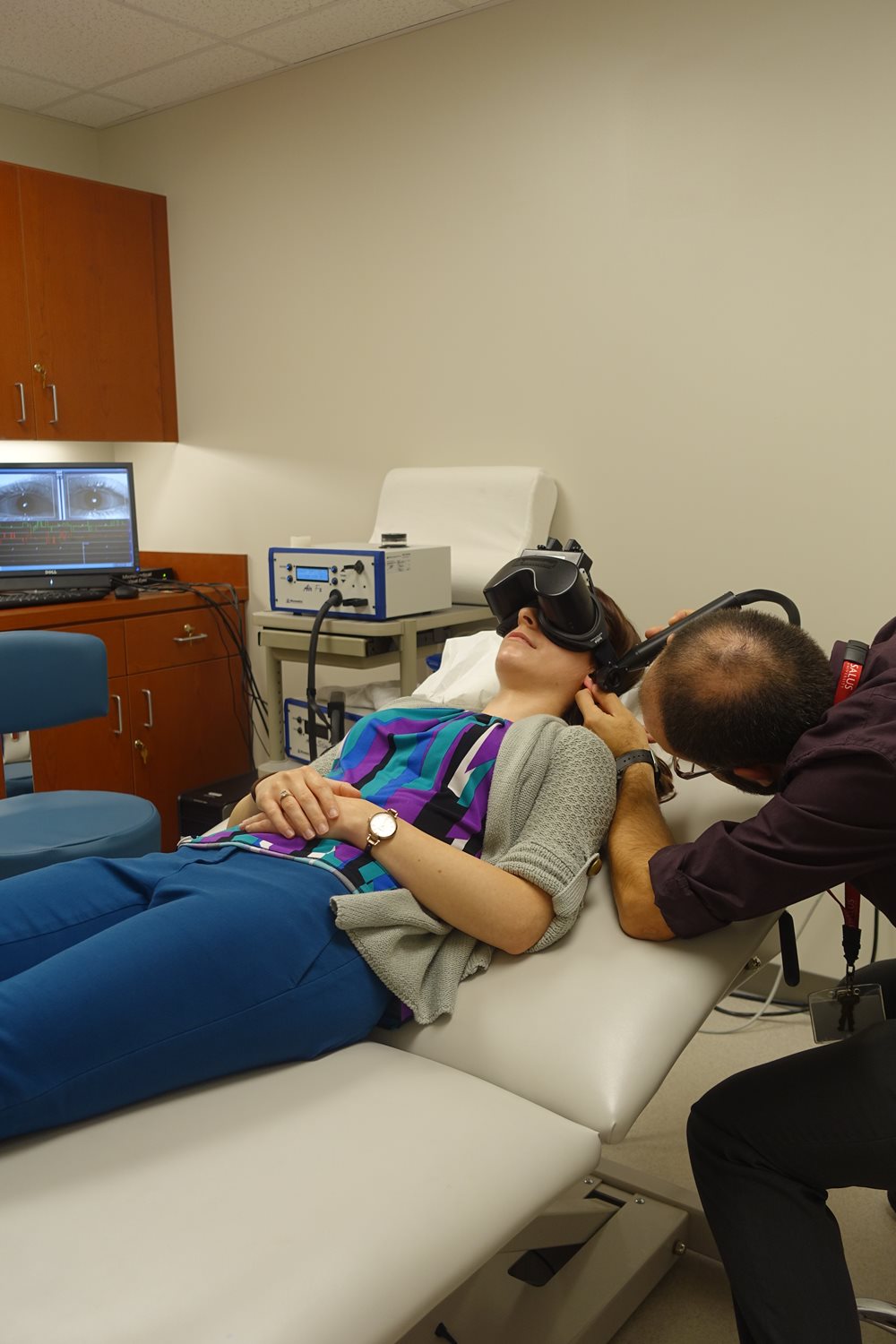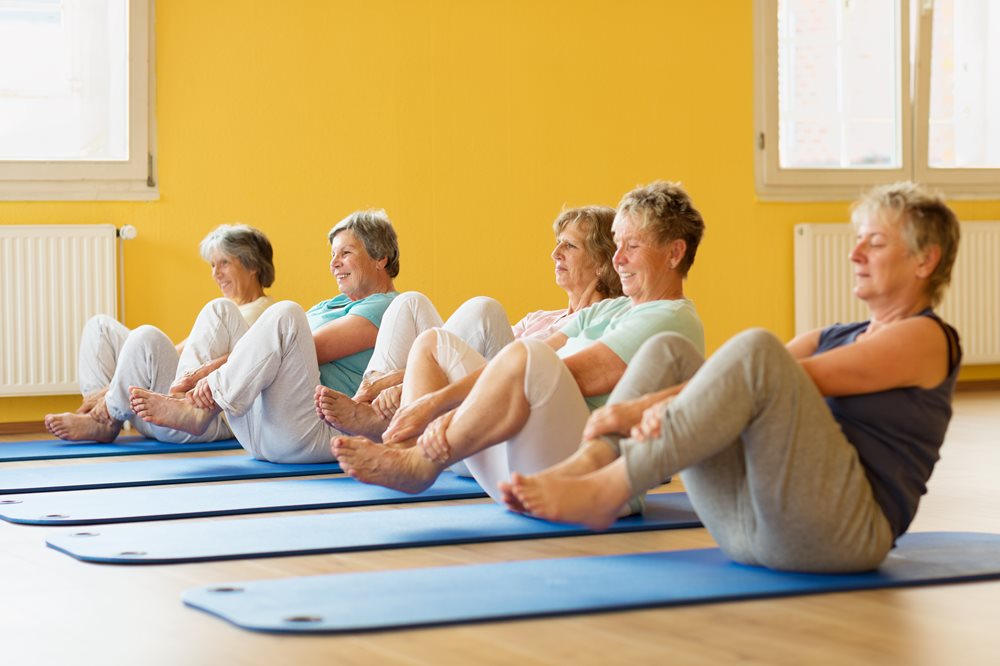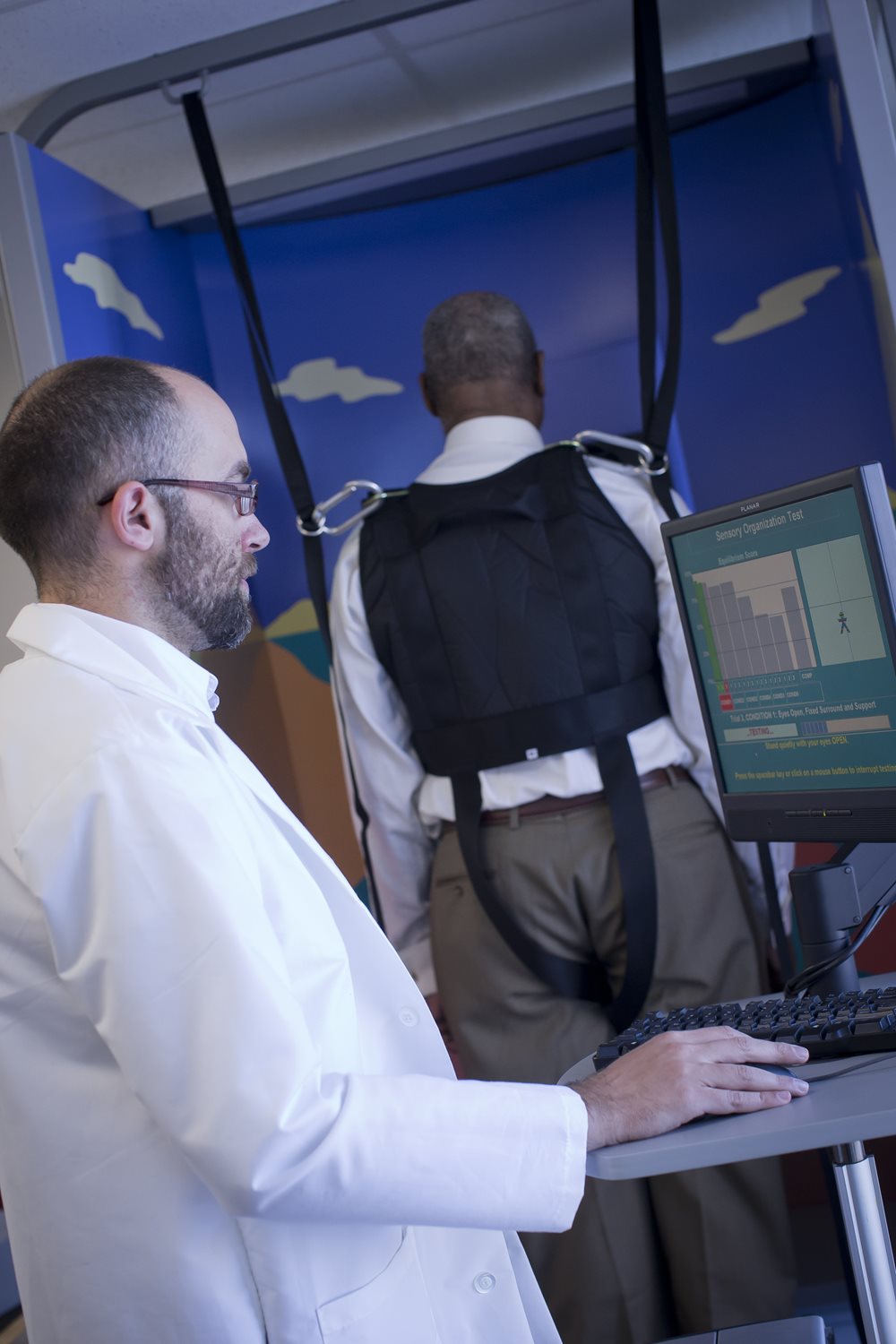Balance Problems and Fall Risk
 Balance problems can make you feel dizzy, as if the room is spinning, unsteady, or lightheaded. These feelings can happen whether you're lying down, sitting or standing.
Balance problems can make you feel dizzy, as if the room is spinning, unsteady, or lightheaded. These feelings can happen whether you're lying down, sitting or standing.
Balance is something most of us take for granted. It’s automatically hardwired into our bodies at birth, evolving and adapting as we grow and age. While basic balance is innate, some of us are able to perfect or even master our balance through exercise and practice. We don’t often think about our balance ... until we lose it.
Many body systems, including your muscles, bones, joints, eyes, the balance organ in the inner ear, nerves, heart and blood vessels must work normally for you to have and maintain normal balance. When these systems aren't functioning well, you can experience balance problems. Many medical conditions can cause balance problems. However, most balance problems result from issues in your balance organ in the inner ear (vestibular system).
While most people may not be familiar with the word vestibular, relating to your inner ear, brain, and sense of balance, many of us have likely experienced the awkward or sometimes scary feeling when we momentarily lose our balance. Maybe it’s taking a wrong step or getting motion sickness aboard a jostling boat, or the nauseating head-spinning sensation after one too many alcoholic beverages. Eventually our balance comes back and life moves on.
This is not the case for those who suffer from the mostly invisible and frequently debilitating symptoms of chronic imbalance association with a vestibular disorder. Whether it comes on gradually over time or all of a sudden, bouts of dizziness, vertigo, and nausea can make many of life’s more routine tasks virtually impossible.
According to the American Geriatrics Society, about one-third of older individuals report difficulty with balance or walking and the numbers increase significantly after age 75. In adults over age 65, balance problems are linked to falls.
Causes of Balance Problems
People are more likely to have problems with balance as they get older. But age is not the only reason these problems occur.
Causes of balance problems include medications, ear infection, a head injury, or anything else that affects the inner ear or brain. Low blood pressure can lead to dizziness when you stand up too quickly. Problems that affect the skeletal or visual systems, such as arthritis or eye muscle imbalance, can also cause balance disorders.
Some diseases of the circulatory system, such as stroke, can cause dizziness and other balance problems.
Often, dizziness or balance disorders can cause or contribute to falls, which according to the Centers for Disease Control and Prevention (CDC) are the number one cause of injuries and deaths in older adults. In some cases, you can help reduce your risk for certain balance problems.

How to prevent falls
- Increase strength. A strong body, particularly your core, will improve your balance and help you avoid falls. Consult a doctor first, but you could try tai chi, yoga or even standard strength training.
- Use handrails. Always use handrails when walking up and down the stairs. Falls can happen at any age. Making it a rule to use the handrails could save you from a serious injury.
- Remove hazardous items from the floor. Remove hazardous items from the floor that may trip people, such as stools and scatter rugs.
- Wear low-heeled, flexible shoes with a good tread. For women, it’s tempting to wear high heels, but flats are a safer option if you are worried about losing your balance. For men and women, be sure to wear shoes that have a good tread so you don’t slip on slippery floors.
- Safety-proof your home. Place hand grips in the bath and shower and always use handrails when walking up and down stairs. Use adequate lighting or night lights to safely walk around your home at night.
 Treatment options are available and vary depending on what causes the vertigo. For those with one of the most common causes of vertigo, benign paroxysmal positional vertigo, tiny calcium crystals (otoconia) become dislodged and float into one of the "balance canals." People will often experience a brief, but intense spinning sensation whenever they lie down or tilt their head back. This is treated in the office at the Pennsylvania Ear Institute with a simple repositioning maneuver that helps move the otoconia to the proper spot within the inner ear.
Treatment options are available and vary depending on what causes the vertigo. For those with one of the most common causes of vertigo, benign paroxysmal positional vertigo, tiny calcium crystals (otoconia) become dislodged and float into one of the "balance canals." People will often experience a brief, but intense spinning sensation whenever they lie down or tilt their head back. This is treated in the office at the Pennsylvania Ear Institute with a simple repositioning maneuver that helps move the otoconia to the proper spot within the inner ear.
Audiologists at the Pennsylvania Ear Institute (PEI) are experts in diagnosing and treating balance and vestibular disorders. Using some of the latest, technical equipment available, audiologists will perform various tests to properly identify balance disorders.
If you or a loved one is experiencing vertigo, contact PEI for a balance evaluation.